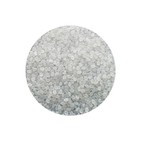PBAT resin has been an important polymer material in the plastics industry due to its excellent properties such as stretchability, heat resistance, impact resistance, and biodegradability. As a bio-based polymer, PBAT has the potential to replace traditional non-biodegradable materials like PE, PP, and PVC in various applications. In this blog post, we will take a closer look at the benefits of PBAT resin in polymer and how it is revolutionizing the plastics industry.
First and foremost, PBAT resin is an environmentally friendly material that can be easily biodegraded by bacteria and other microorganisms. This makes it an ideal choice for applications where there is a need to reduce the impact of plastics on the environment. PBAT can be used to produce a wide range of products including disposable plastic packaging, film bags, agricultural films, medical materials, and courier packaging. Its biodegradability ensures that these products can be safely disposed of without causing harm to the environment.

Another significant advantage of PBAT resin is its stretchability and heat resistance. PBAT has excellent mechanical properties making it ideal for applications where there is a need for a material that can withstand high stress and strain. For instance, it is used in the production of agricultural films since it can withstand high water content and UV radiation without breaking down. Additionally, PBAT's excellent heat resistance means that it can be used in high-temperature environments such as the production of hot-fill food packaging.
Furthermore, the use of PBAT resin in polymer has solved the problem of the white pollution caused by traditional non-biodegradable materials. PBAT provides a reliable solution to this problem, as it can be easily degraded without causing harm to the environment. Moreover, PBAT can be processed using existing manufacturing methods, meaning the transition to PBAT does not require significant investment.
In conclusion, PBAT resin is an innovative biodegradable polymer material that is fast gaining popularity in the plastics industry. Its excellent properties, including stretchability, heat resistance, and biodegradability make it an ideal choice for a wide range of applications. The use of PBAT in polymer has provided a reliable solution to the problem of white pollution and is revolutionizing the way plastics are produced and used.




